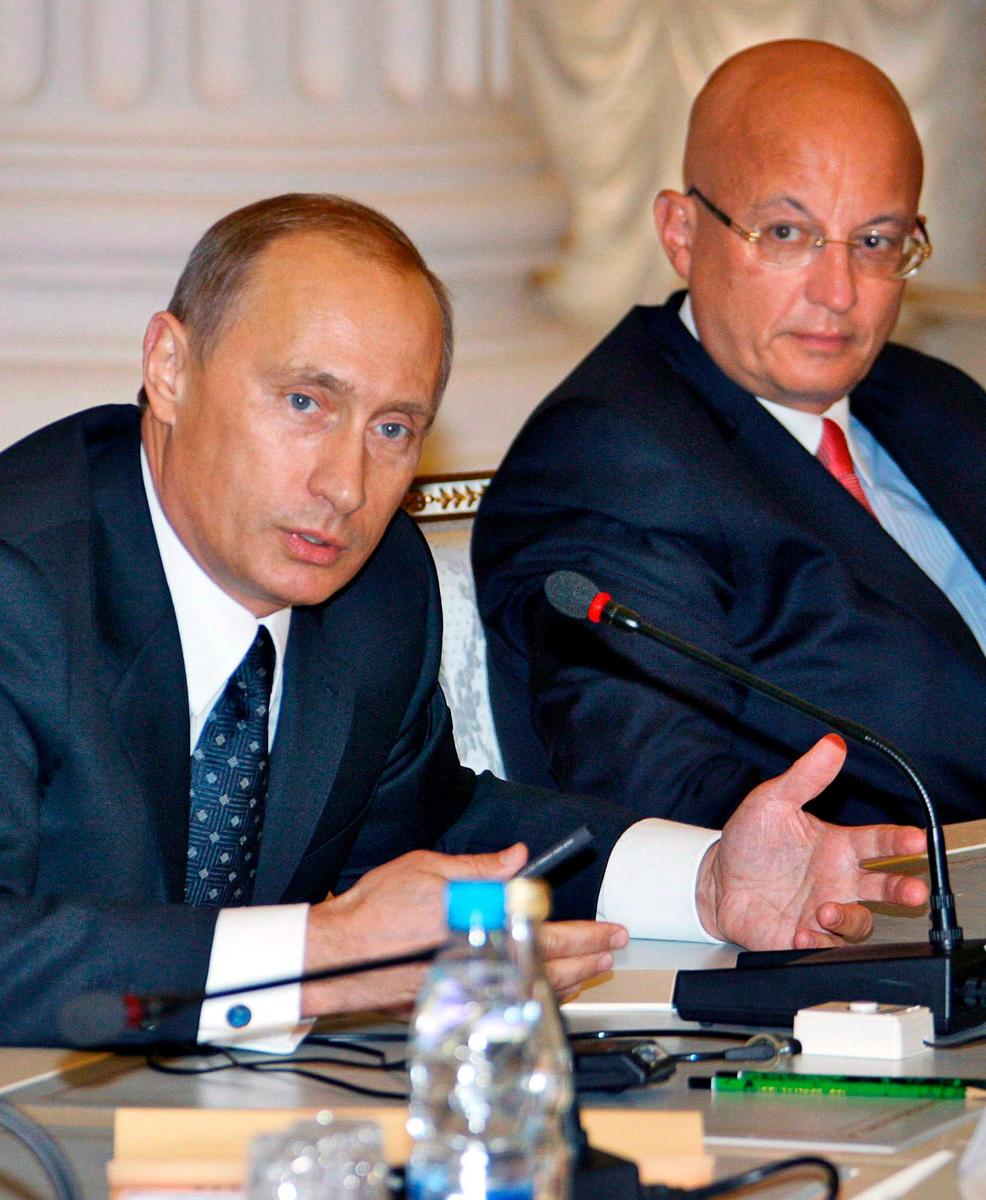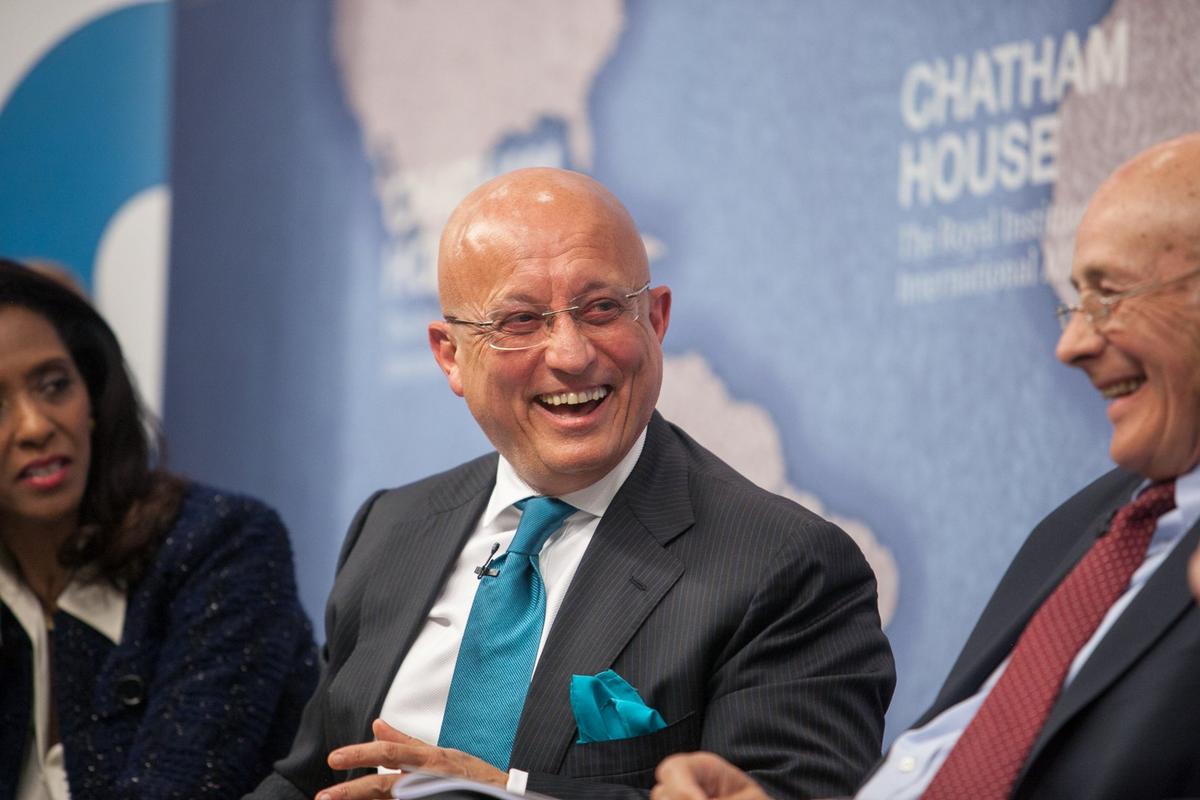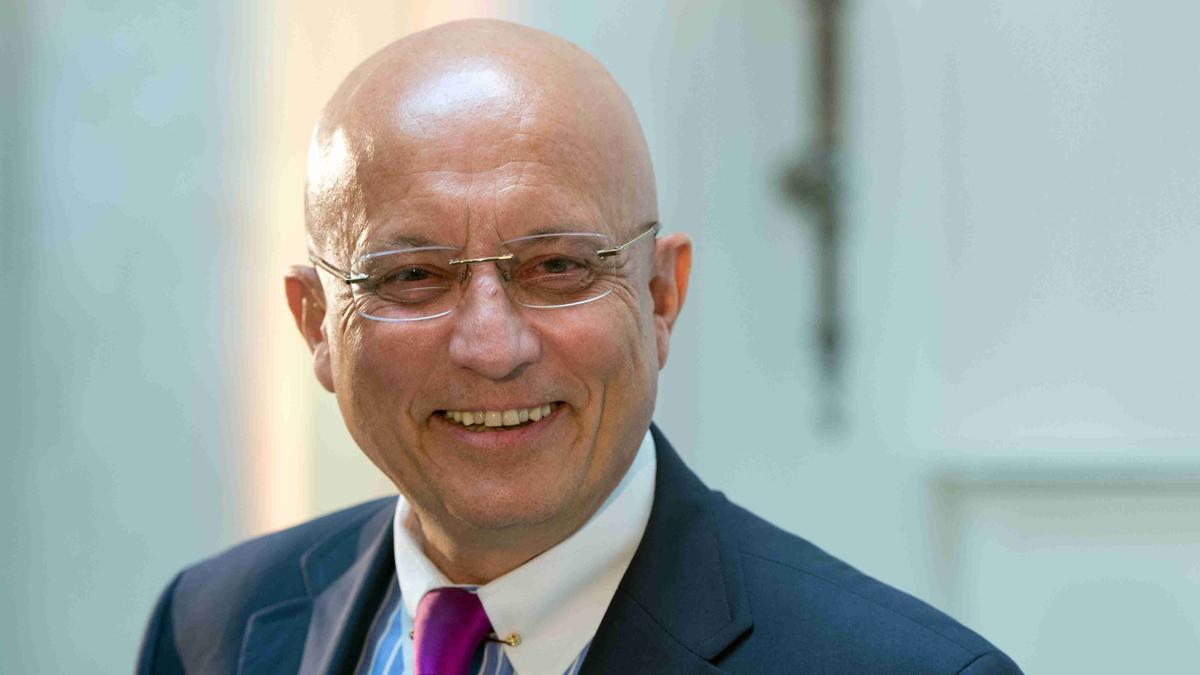Sergey Karaganov, political scientist, economist and academic supervisor of the Department of World Economy and International Affairs at the Higher School of Economics (HSE), has published an article titled “A difficult but necessary decision”. In it, he scolds the West, praises China, and calls for a nuclear strike on “a bunch of targets in a number of countries in order to bring those who have lost their mind to reason”. Novaya-Europe explores how a 1990s liberal loyal to the system became a bloodthirsty propagandist.
On nuclear weapons
“The creation of nuclear weapons was the result of divine intervention. Horrified to see that people, Europeans and the Japanese who had joined them, had unleashed two world wars within the life-span of one generation, sacrificing tens of millions of lives, God handed a weapon of Armageddon to humanity to remind those who had lost the fear of hell that it existed”, writes Karaganov about nuclear weapons.
The idea that nuclear weapons are a gift from God is not new to him.
In his latest article, Karaganov calls for an escalation of the risk of nuclear weapons use. In his view, such a threat would instil in humankind the fear which would deter the actual use of the nuclear option. Moreover, he believes that nuclear blackmail will enable Russia to force Western countries to withdraw their support for Ukraine.
He then answers the question “well what if they don’t?” unequivocally: in that case, nuclear weapons would have to be used.
“Morally, this is a terrible choice as we will use God’s weapon, thus dooming ourselves to grave spiritual losses. But if we do not do this, not only Russia can die, but most likely the entire human civilization will cease to exist”, he writes.
Karaganov sees a bright future for Russia after the use of nuclear weapons: he finds that if the USA are frightened in this way it will be possible to build a “multipolar, multicultural, multicoloured” world.
The idea of using nuclear weapons to avert a nuclear apocalypse does not seem self-contradictory to Karaganov. “I have said and written many times that if we correctly build a strategy of intimidation and deterrence and even use of nuclear weapons, the risk of a ‘retaliatory’ nuclear or any other strike on our territory can be reduced to an absolute minimum”, he argues. However, he fails to give a clear explanation of how to do this.
Who is Karaganov?
Sergey Karaganov was born into the family of Alexander Karaganov, Secretary of the Union of Soviet Filmmakers, and Sofia Dolmatovskaya, ex-wife of the poet Yevgeny Dolmatovsky. Sergey Karaganov graduated from Moscow State University, after which he went to the United States for an internship for several years. After returning to the USSR, he worked first at the Institute for the United States and Canada at the Academy of Sciences, then at the Institute of Europe.
Karaganov began his political career in the 1990s. In 1989, he became an expert with the International Relations Committee of the USSR Supreme Soviet, and in 1992 he co-founded, and later became head of, the Council for Foreign and Defense Policy (CFDP).
The CFDP is one of the most important milestones in Karaganov’s career. It is a public association of politicians, members of the security services, the business community, and the media, as well as scientists. Its members tend to be public figures who openly praise the current government.

Vladimir Putin and Sergey Karaganov during the president’s meeting with political experts in the Kremlin, September 2006. Photo: EPA / SERGEI ZHUKOV ITAR-TASS POOL
The most important projects of the CFDP are the Russia in Global Affairs magazine (considered respectable in certain circles) and the Valdai Discussion Club, of which Vladimir Putin is a regular guest.
Moreover, Karaganov has been an adviser to the deputy head of the Russian presidential administration for foreign policy since 2001. In other words, he has been conventionally “close to power” since the early 1990s. In his book Soviet Civilization, journalist Sergey Kara-Murza even called him a “shadow political scientist”.
In truth, a great many political commentators whose ideas coincide with the general course of the authorities are given this moniker (e.g. Alexander Dugin and the late Gleb Pavlovsky). Nevertheless, one should not underestimate Karaganov’s importance as one of the most prominent propagandists. He regularly writes articles promoting pro-government ideas, provides commentary to Russian state media, and is a frequent guest on the Right to Know talk show on federal TV.
In October 2022, The International Working Group on Russian Sanctions proposed that all democratic countries impose sanctions on 166 Russian propagandists. Karaganov was on the list. The Group claimed that these people were creating an ideological justification for the war in Ukraine, but remained in the shadows and were therefore able to avoid its direct consequences.
Karaganov was put on the Ukraine sanctions list in January 2023 and on Canada’s blacklist in February, but the US and the EU still have not imposed sanctions on him.
The turn from West to East
In the 1990s and even in the 2000s Karaganov was considered to be one of the main “systemic liberals”. Among other things, he actively supported Russia’s rapprochement with Europe, the US, and NATO. In 1994, he published an article arguing that Russia should fight Poland, the Czech Republic and Hungary for the right to join NATO.
In the 2000s, as relations between Russia and the West began to cool, Karaganov published numerous articles on how to achieve European integration for Russia. In 2005, for example, he wrote a lengthy commentary on the US National Intelligence Council (NIC) report “Charting a Global Future”. The report itself stated that Russia was not considered a great power of the future and that its most likely development scenario was a transition to an authoritarian regime. Karaganov found this prediction unpleasant. “I hope we’ll prove it wrong”, he wrote at the time.
“We must do everything possible to ensure that the NIC’s forecast about Russia does not come true and that we are not pushed back to the group of backward authoritarian powers and turned into their shepherd in exchange for a policy of soft restraint and scant praise from the West. If we don’t break out of the quagmire of authoritarian stagnation, we will be seen as a useful vassal, but by no means an equal partner or a great power. The choice is ours”, Karaganov wrote.
Alexander Dugin, another odious Russian political figure, who has also been branded “the Kremlin’s ideologue”, even said Karaganov’s CFDP was a subsidiary of the US think tank Council on Foreign Relations.
“Most of today’s patriotic political scientists — Pushkov, Zatulin, Rogozin — passed through Karaganov’s CFDP in the 1990s. Everyone who is perceived as a patriot in Russia actually went through the CFDP, <…> our elite is permeated by the network and controlled by it”, Dugin said. In his opinion, the purpose of the CFDP was for Americans to clandestinely whisper their ideas to the Russian government.

At a conference in London, 2015. Photo: Wikimedia
We do not know whether there is any truth to his words, but Dugin’s statement indicates that Karaganov was disliked by the ultra-patriotic crowd for his “liberal” position.
However, this position has never really been oppositional and always adjusted easily to whichever path the Russian authorities took.
In the 2010s, as relations with the West became even more strained, Karaganov gradually abandoned the idea of European integration and began to support the establishment of relations with China. He proposed moving the Russian capital to Vladivostok and reorienting the economic markets of the Russian East towards China.
In his latest article, Karaganov calls China Russia’s friend and writes about Chinese-Russian relations with the same trepidation that he once expressed for Russian-European relations. He hopes that once the war in Ukraine is over, Russia will be able to take its place “behind China, as it now stands behind us, supporting it in its fight with the United States”.
“In this case it will be possible to avoid a big war”, Karaganov believes. “Together we will win for the benefit of everyone, including the people living in Western countries.”
Join us in rebuilding Novaya Gazeta Europe
The Russian government has banned independent media. We were forced to leave our country in order to keep doing our job, telling our readers about what is going on Russia, Ukraine and Europe.
We will continue fighting against warfare and dictatorship. We believe that freedom of speech is the most efficient antidote against tyranny. Support us financially to help us fight for peace and freedom.
By clicking the Support button, you agree to the processing of your personal data.
To cancel a regular donation, please write to [email protected]

